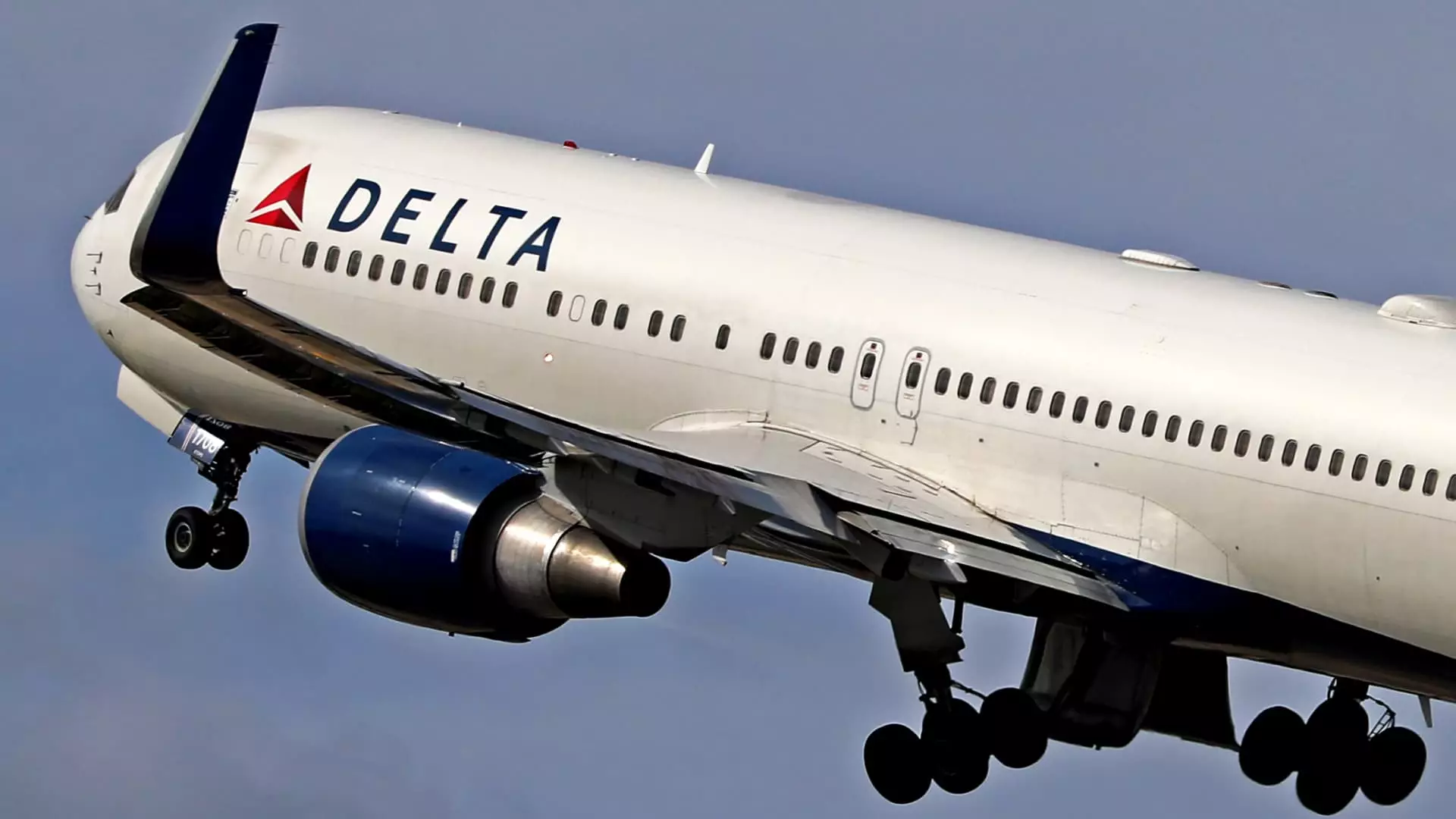The aviation industry finds itself in turbulent waters, as the recent downturn in airline stocks showcases significant underlying issues. On Tuesday, shares of key airlines sank further, reflecting Wall Street’s escalating anxiety over an unexpected dip in travel demand. This downturn not only raises alarms about the current state of consumer confidence but also brings into question the broader economic implications of a hesitant flying public. Delta Air Lines, the crown jewel of U.S. carriers, saw its stock price plummet over 3% following Jefferies’ sobering downgrade from “buy” to “hold.” This marked a pivotal moment, indicating that even the largest industry players are not immune to the drag of economic uncertainty.
The Financial Fallout for Airlines
Jefferies’ decision to slash its price target for Delta from $86 to $46 sends a clear message: the airline isn’t just facing a temporary challenge; it may need to recalibrate its long-term goals. Analysts have suggested that Delta’s optimistic earnings forecasts for 2025 are now at risk. At a time when economic resilience is paramount, it’s disheartening to witness a once-thriving industry grappling with a possible stagnation of higher-end travelers as consumers tighten their purse strings. This deterioration extends beyond Delta, affecting American Airlines and Southwest Airlines, both of which also saw their stocks fall significantly—3% and 5%, respectively.
The Impact of Tariffs and Consumer Behavior
As if tightening consumer confidence wasn’t enough, looming tariffs threaten to amplify the industry’s woes by increasing operational costs. Many consumers are likely to scale back their travel plans as they confront not only a lackluster economy but also unpredictable pricing structures. A recent report from Bank of America corroborates these concerns, revealing a 7.2% drop in airline spending as of mid-March. This situation illustrates that consumers aren’t merely cutting back—they’re actively re-evaluating their travel needs. The skepticism surrounding air travel is echoed by recent comments from industry executives at a JPMorgan conference, who expressed concern about the sluggish demand for domestic flights, the backbone of the U.S. travel industry.
The Broader Economic Dialogue
It is essential to recognize that this issue transcends individual airlines; it reflects a broader economic narrative. With U.S. household spending overall rising by a modest 1.5%, the stark contrast in travel spending signifies that consumers are more selective and cautious about discretionary expenses. Our society appears to be wrestling with an uncomfortable truth: the days of unbridled consumer spending, particularly in the travel sector, may be behind us. Factors such as inclement weather and a later Easter could slightly mitigate this trend, but those are merely temporary scapegoats; the underlying trepidation persists.
Investors need to be acutely aware of the implications stemming from this airline stock debacle. A staggering 18% drop in the NYSE Arca Airline Index during the first quarter serves as a foreboding reminder that the market may not soon recover from its current bearish stance. For an industry long viewed as a reliable economic barometer, the chances for recovery appear increasingly slim as the dual pressures of tariff threats and declining consumer confidence continue to weigh heavily on the sector. The airline industry may well need to engage in a fundamental reassessment of its business strategies to adapt to a new economic reality that prioritizes cautious consumer behavior over pre-pandemic growth trajectories.

